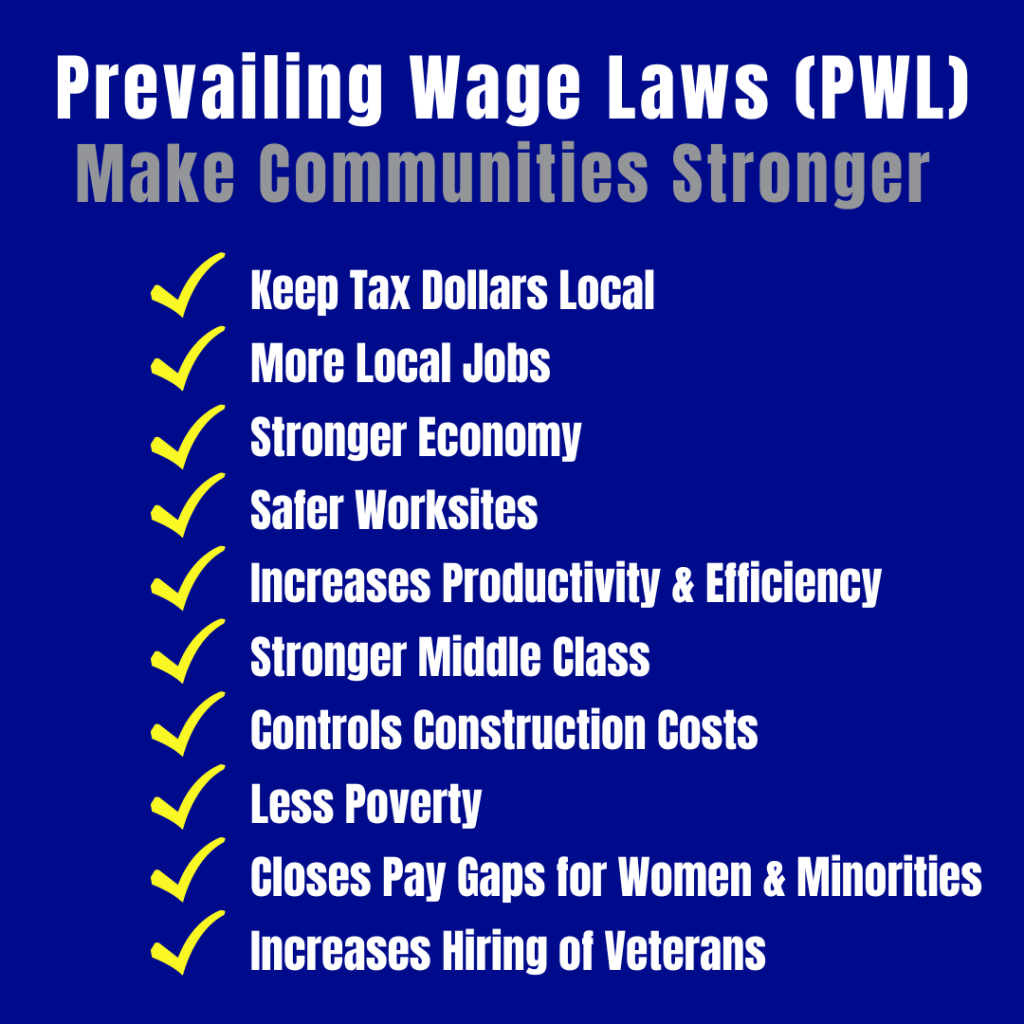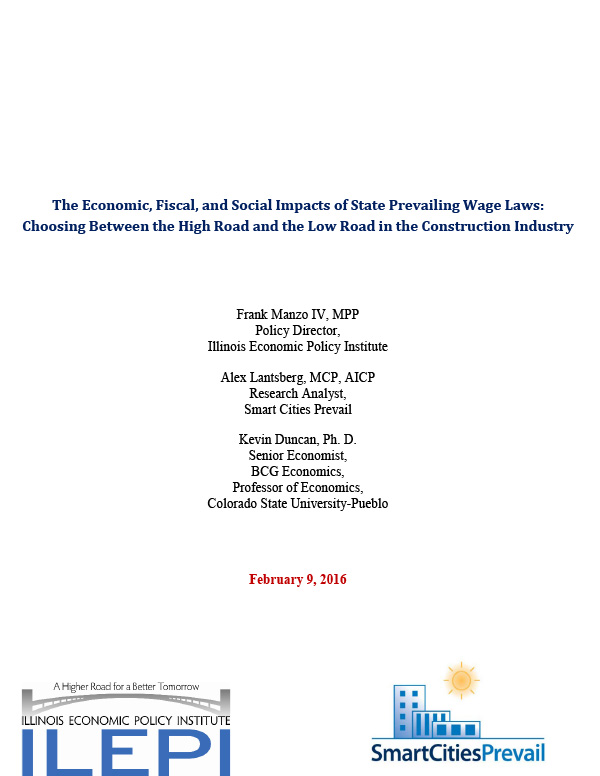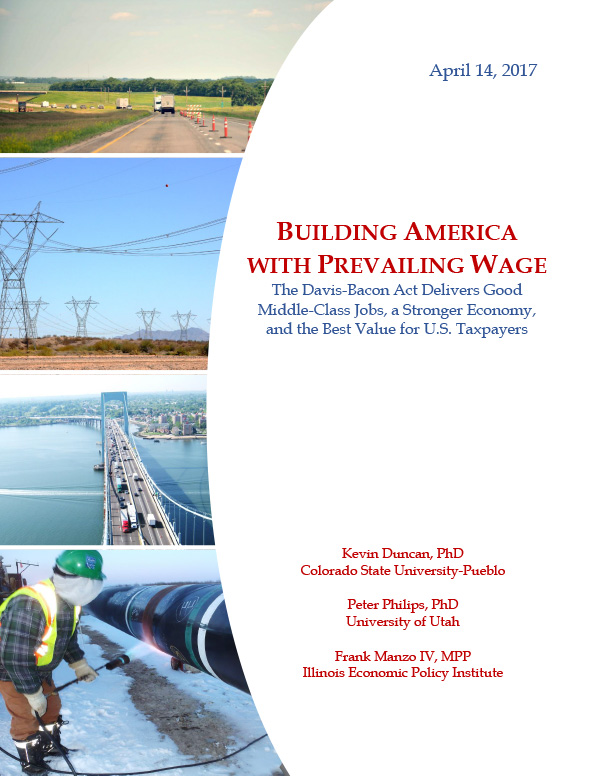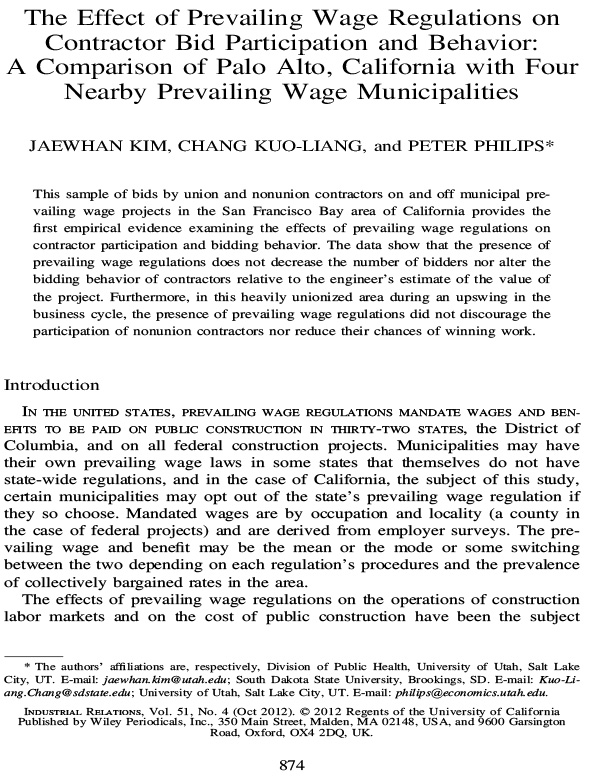
Prevailing Wage
Prevailing wage policies establish minimum wage and training standards on publicly funded construction projects. Prevailing Wage rates are created by the Department of Industrial Relations, based on surveys of what local contractors are paying for different types of skilled trade work where the project is being built. Research consistently shows that while prevailing wage policies have no effect on overall projects costs, they do maximize value for taxpayers and communities by:
- Increasing the number of projects built by local contractors.
- Strengthening the apprenticeship programs that train workers for in-demand construction jobs and attach them to careers in our industry.
- Delivering superior productivity and safety outcomes on projects.
- Reducing the risk of labor shortages, cost overruns, or contractor non-performance on critical infrastructure projects.
- Improving wages, access to health insurance, and overall job quality for skilled construction workers.








